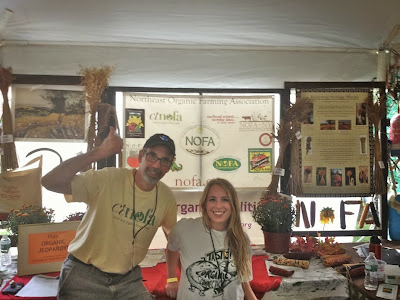Summer Intern
Hours: 25 to 40 hours a week - weekly hours are flexible based on intern availability,
event scheduling and requirements for college credit. The position is mostly structured for a current student or recently graduate, but all are welcome to apply.
Compensation: Unpaid
Position Details: CT NOFA’s intern position is provides an opportunity to become involved with multiple programs at the organization and gain broad experience with non-profit work. The intern’s work will primarily be in our office in Oxford, Connecticut helping to promote events, completing and compiling research, helping at workshops and carrying out administrative duties. Interns are welcome to work remotely for some time based on their availability and location (we encourage interns to come in once a week or more).
Responsibilities:
• Complete research about state and regional resources for gardeners and farmers and education opportunities for gardeners and landscapers
• Update CT NOFA and NOFA Organic Land Care websites
• Contribute to CT NOFA and NOFA OLC’s social media: Facebook, Twitter and a Blog
• Help event coordinators with workshops and summer events (set up, registration, clean up, etc.)
Qualifications:
• Strong organizational skills and attention to detail
• Intern must have access to a car, outreach requires travel to different locations, mostly within Connecticut (CT NOFA will reimburse for mileage expenses)
• Familiarity with local farming or the Connecticut sustainable food movement is helpful, but not required.
About CT NOFA
CT NOFA is the Connecticut Chapter of the Northeast Organic Farming Association. CT NOFA is an independent non-profit organization dedicated to strengthening the practices of ecologically sound farming and gardening, and to the development of local sustainable agriculture. Our efforts give consumers increased access to safe and healthy food. CT NOFA is a growing community of farmers, gardeners, land care professionals, businesses and consumers that encourages a healthy relationship to the natural world.
How to Apply:
Please send a coverletter and resume to Kristiane Huber at kristiane@ctnofa.org. We'll get in touch with you right away to discuss if you'll enjoy and benefit from working with us this summer!













































